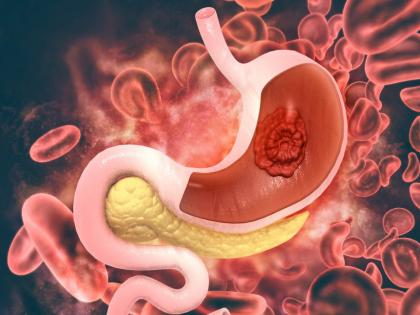Can Persistent Acidity and Heartburn Be a Sign of Gastric Cancer?
By Lokmat Times Desk | Updated: August 29, 2025 13:28 IST2025-08-29T13:27:11+5:302025-08-29T13:28:20+5:30
In today’s fast-paced lifestyle, people spend long hours outside due to work and busy schedules, often relying on ultra-processed ...

Can Persistent Acidity and Heartburn Be a Sign of Gastric Cancer?
In today’s fast-paced lifestyle, people spend long hours outside due to work and busy schedules, often relying on ultra-processed and oily foods instead of home-cooked meals. This unhealthy routine is giving rise to several health problems, particularly gastrointestinal issues. Acidity, heartburn, sour burps, and obesity are often dismissed as common concerns, but experts warn that persistent symptoms could indicate a more serious condition—stomach cancer. Timely medical attention is crucial to prevent complications and save lives.
According to the Cleveland Clinic, stomach cancer, also known as gastric cancer, develops when abnormal cells in the stomach lining begin to grow uncontrollably. These cells gradually spread within the stomach, and in about 95% of cases, the disease originates from the inner layers of the stomach. If left untreated, tumors may form and spread to nearby organs such as the liver and pancreas, making treatment more difficult.
Stomach cancer can affect anyone, but individuals above the age of 65 are at higher risk. Studies also show that men are more prone to this disease compared to women. Some common symptoms include loss of appetite, difficulty swallowing, fatigue, nausea, vomiting, sudden weight loss, heartburn, indigestion, black stools, blood in vomit, and a feeling of heaviness after meals. Ignoring these signs can delay diagnosis, reducing the chances of successful treatment.
The main cause of stomach cancer is mutations in the DNA of stomach cells. DNA acts as an instruction manual, telling cells when to grow and when to die. When mutations occur, cells begin to grow uncontrollably and fail to die as they should, forming tumors that can eventually spread. Experts emphasize the importance of healthy eating habits, early detection, and prompt treatment to reduce the risk of stomach cancer and improve survival rates.
Open in app